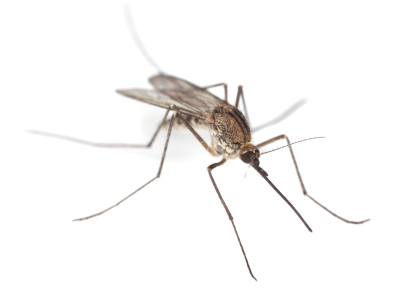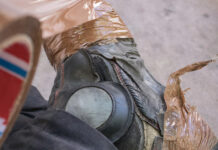Bug repellant and FR clothing have been considered in combination. However, testing has been done with this application on fire resistant clothing. Results of this application showed little promise. With fire retardant clothing, sprays like DEET are shown as significantly reducing the factor of flame retardation. While it is always advised to use bug repellent on the skin, testing and research are showing that using this or any other type of repellant on FR clothing can cause serious problems. One problem with using DEET on clothing is that sprays like this are flammable, therefore reducing the protective retardation of flame for FR clothing.
Flash fires have resulted from the use of DEET on flame resistant clothing. Application of these sprays can cause the fire resistant clothing to fail, endangering the firefighter. One potential answer to this problem is the use of permethrin, which is a non-flammable bug spray. Application to the skin is not advised and use as directed is advised strongly. It is the only form of insect repellant that should be considered. While it is non-toxic to mammals and birds, its toxicity to fish and bee varieties is known.
This is another consideration to consider when the question of using any type of bug spray on clothing arises. A debate has been sparked by the results of both the DEET testing and the permethrin testing. However, when thinking about using DEET spray, it is highly advisable and much safer to use the spray on your skin and not on clothing due to the dangers of flash fires. It is done in order to not compromise the fire retardation element of clothing. Fire resistant clothing has to work right the first time. Any compromise of that clothing jeopardizes the firefighter and puts them into a more dangerous situation than before.
It is a personal choice as to following the warnings or not. Those that have not followed them have been injured seriously. Warnings about using bug repellant on clothing that is fire retardant bear repeating because of the dangers involved in this practice. It is not safe to consider using DEET on fire-resistant clothing, no matter what the circumstances are. Fire retardant clothing is meant as a life-saving and life-protecting measure. Any compromise of this clothing adds to the danger already faced by firemen fighting fires in the outdoors. Many firefighting departments follow this outline to the letter to protect their firefighters.
It is important to check how your FR products have been made, what materials are used and to follow the proper procedures as to follow the appropriate maintenance to make sure they keep working effectively. This will ultimately work to keep your FR clothing in top shape so you can stay protected and safe. You should also be aware of how your FR clothing has been tested and the regulations which your employer is required to follow.




